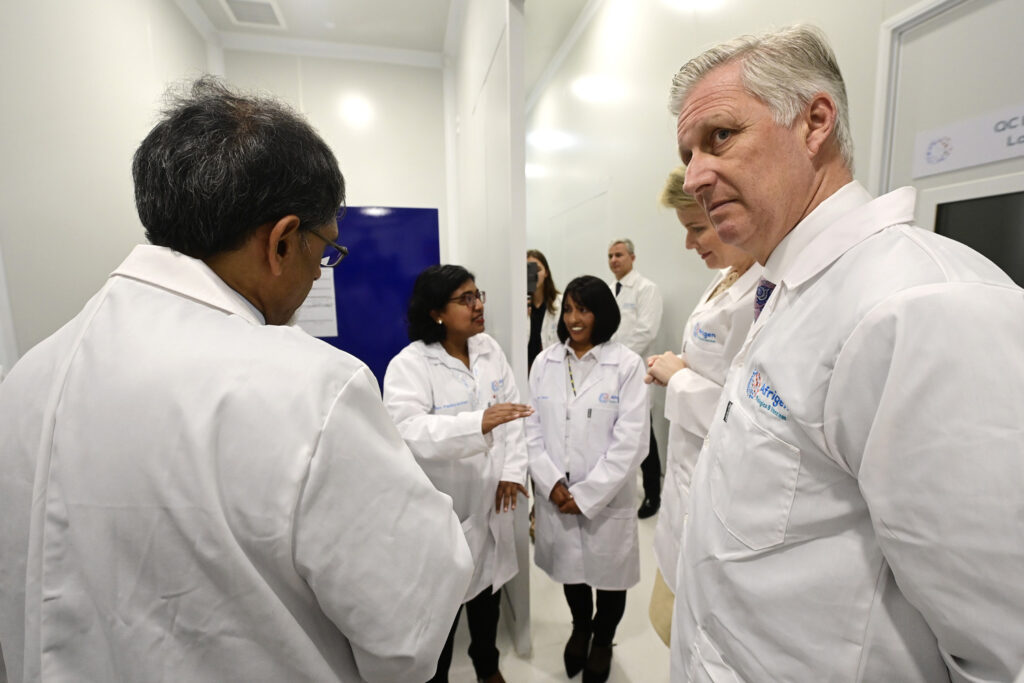South African biotech company Afrigen will soon be able to produce RNA for vaccines with the help of a Belgian automated mini-laboratory, making it easier for the Cape Town-based company – which developed the first African mRNA vaccine against Covid-19 – to scale up its production. King Philippe and Queen Mathilde learned this on Saturday during their visit to the site.
The World Health Organisation (WHO) designated Afrigen as the global centre of excellence for mRNA vaccine technology in June 2022. The company not only develops and produces vaccines, but is also responsible for knowledge transfer to more than 15 production sites in low- and middle-income countries.
Afrigen managed to develop its own mRNA Covid-19 vaccine last year, by dissecting that of US pharma giant Moderna. Currently, the first African-made mRNA vaccine is in the preclinical testing phase.
Related News
- Belgian King and Queen on first-ever state visit to South Africa
- Belgian King Philippe learns to skateboard in Johannesburg
In late 2022, Afrigen partnered with Walloon biotech company Univercells and Flemish industry peer Etherna. Through subsidiary Quantoom, Univercells developed an automated laboratory of about two square metres for the production of RNA, the first of which will arrive at Afrigen in the coming weeks.
Etherna provides the technology that allows the vaccines to be stored in normal refrigerators, rather than at temperatures of -20 to -80 degrees. This makes the vaccines more accessible in low- and middle-income countries.
"The minilab works completely autonomously and makes small amounts of RNA," explained Univercells co-founder and Quantoom CEO Jose Castillo. "It makes no mistakes and offers consistent, continuous production of RNA day and night." As a result, there is no need for scale and accompanying massive investment. The minilab can eventually make RNA for 50 million vaccine doses a year.

